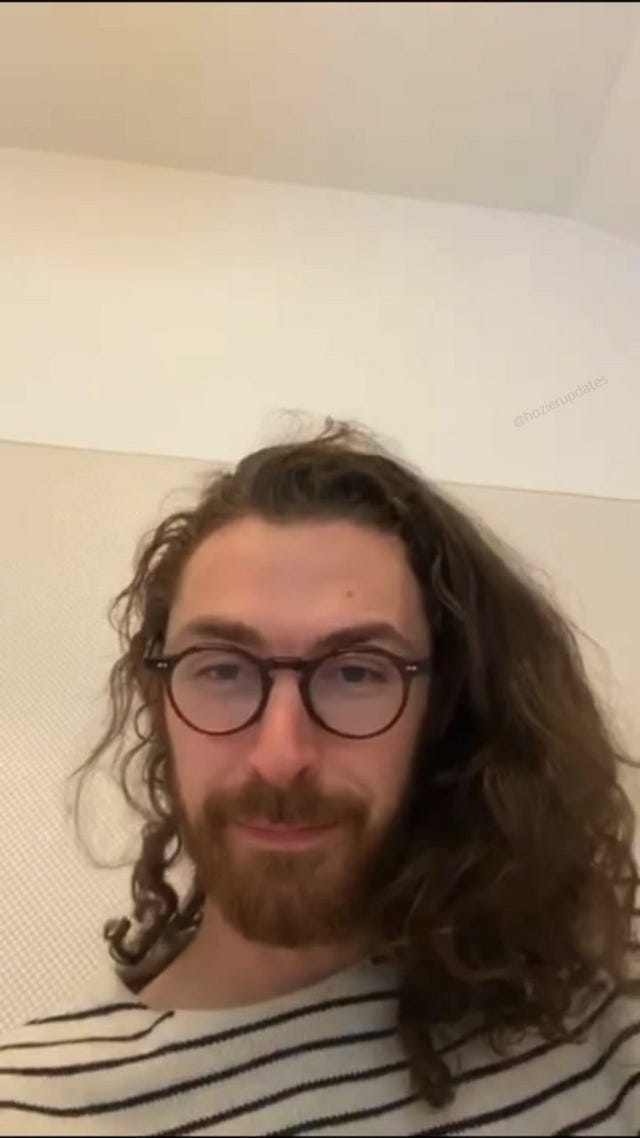We need more than bread and water to live. We need more than air and shelter. We even need more than love and stories.
We also need poetry.
But that’s something we tend to forget, over and over again.
This week, poet, playwright and essayist Adam Wyeth joined me on KnotWork Storytelling.
As the show has evolved through nearly seventy episodes, the standard model of “a story and a chat” shifts and expands more and more. This time, Adam brings a selection of poems from several of his critically-acclaimed, award winning volumes, and we weave our conversation around them.
I love what Adam has to say about the truly powerful, subversive nature of poetry:
Poetry, you think, well, no one reads it, you know. It's the least read of all the genres. An alien coming to Earth would be very confused by the amount being studied at school, but how no one reads it in real life.
But in a way, there's great power to that. The fact that there's no money in poetry means—I've only realized this recently—that you can say exactly what you want to say.
You think with any other sort of writing, even the theatre industry, that it depends on money. Therefore, you have certain people wanting certain kinds of things, trying to guess the next thing that's going to make money.
Whereas poetry has power because it stands outside of that. So it allows for something truly honest and human because there's no money in it.
So why would you want to write it? It means it stands outside of all those kinds of commercial elements and everything […] Poetry has huge power.
That got me thinking of Rita Ann Higgins’s poem “Poetry Doesn’t Pay.”
I hadn’t read her collection Sunny Side Plucked in years, but I vividly remember sitting on my bed in my damp (but not utterly terrible) student accommodations in Galway, falling in love with her writing - so warm, so feisty, so real.
I gave myself the wild sort of permission to curl up on the couch with Higgins’s book on this cool, rainy Hudson Valley morning (oh, the beautiful terribleness of it all when one region’s disastrous hurricane is another’s sweet reprieve from a long, oppressive summer).
And there it was, the one that every young woman should read (and every one needs to remember long after they are young).
The Did-You-Come-Yets of the Western World
by Rita Ann Higgins
When he says to you:
You look so beautiful
you smell so nice –
how I've missed you –
and did you come yet?
It means nothing,
and he is smaller
than a mouse's fart.
Don't listen to him...
Go to Annaghdown Pier
with your father's rod.
Don't necessarily hold out
for the biggest one;
oftentimes the biggest ones
are the smallest in the end.
Bring them all home,
but not together.
One by one is the trick;
avoid red herrings and scandal.
Maybe you could take two
on the shortest day of the year.
Time is the cheater here
not you, so don't worry.
Many will bite the usual bait;
they will talk their slippery way
through fine clothes and expensive perfume,
fishing up your independence.
These are
the did-you-come-yets of the western world,
the feather and fin rufflers.
Pity for them they have no wisdom.
Others will bite at any bait.
Maggot, suspender, or dead worm.
Throw them to the sharks.
In time one will crawl
out from under thigh-land.
Although drowning he will say,
‘Woman I am terrified, why is this house
shaking?’
And you’ll know he’s the one.
But then, you might already know this poem…
Adam is absolutely right - all too few of us read poetry. Even those of us who have shelves full of it and who know the magic spells contained on every page.
So, we may not read poetry, but if Hozier reads it to us?
Well, I just discovered that he did. And 120,000+ people suddenly feel the house shake - or, at least, were suddenly inspired to find the one who’ll try.
I like to imagine that Rita Ann Higgins sold a few copies of the books that hold this 1988 poem—if only because of the little crooked smile and the head tilt Hozier gives us at the end.






